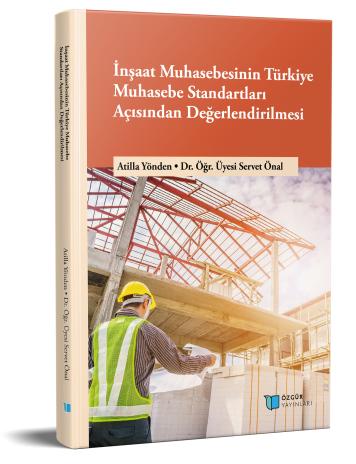
Assessment of Construction Accounting in Turkey in terms of Turkish Accounting Standards
Synopsis
The construction sector has an important place in the national economy. Considering the size of the sector, its capacity to influence other sectors and create employment, the size of the scope of the field becomes easier to understand. When all the construction processes of a building are examined, it is ensured that more than 150 sub-sectors of the construction sector are put into production. Various practices and laws have been made compulsory in practice. Small and medium-sized enterprises and large enterprises engaged in construction activities, that the information in their financial statements is accurate and reliable, users of the financial statements; It is important for domestic and foreign investors, public institutions and financial institutions that provide financing to companies. Accurate and reliable financial statements enable investors to invest in companies. Due to the structural nature of the construction sector, accounting and tax activities allow financial resource providers to provide resources to companies and to trust them. The reliability of the financial statements is possible with the correct integration of the accounting and tax practices and standards in force in the accounting systems of the companies. Demonstrating theory and practice with explanatory examples in this study will contribute to the creation of an accurate accounting system for accountants in the construction industry.
. Businesses in this sector have to make an accounting of the goods and services produced during the construction activities. However, Turkish Accounting Standards (TMS) do not take into account the special situations specific to the construction sector. Therefore, construction accounting should be evaluated in terms of Turkish Accounting Standards. This thesis will examine the application of Turkish Accounting Standards related to construction accounting and accounting practices specific to the construction sector. One of the aims of this study is to understand the accounting practices of businesses operating in the construction sector and to help accountants working in this sector access the information they need. Another aim is to evaluate the accounting practices in the construction sector in terms of Turkish accounting standards (TMS). The study focuses on how issues such as financial management of construction projects, cost accounting and project evaluation can be aligned with TAS 11 Construction Contracts Standard, TAS 18 Revenue Standard. In addition, the application problems in the sector and suggestions for the solution of these problems are presented. The study was carried out using the compilation method and the literature published in the field of construction accounting was examined. As a result, suggestions are presented to harmonize accounting practices in the construction industry with TAS.

